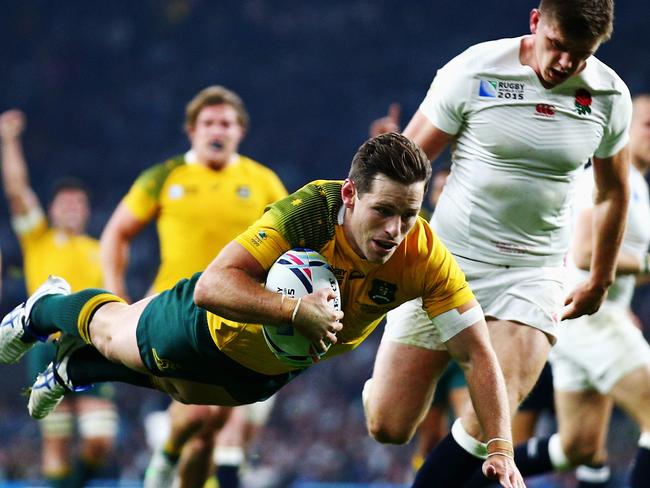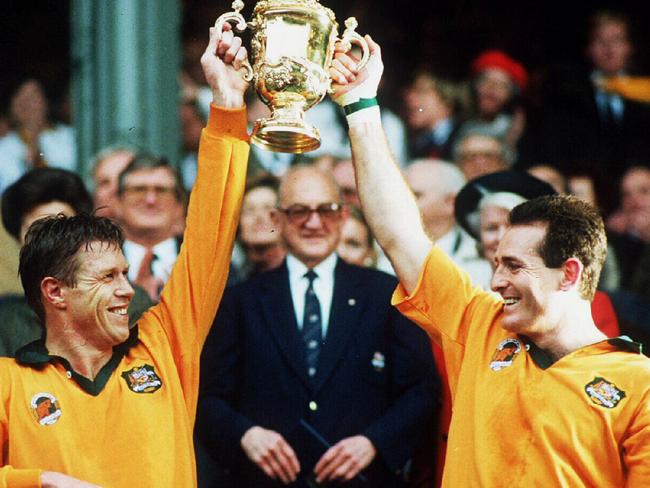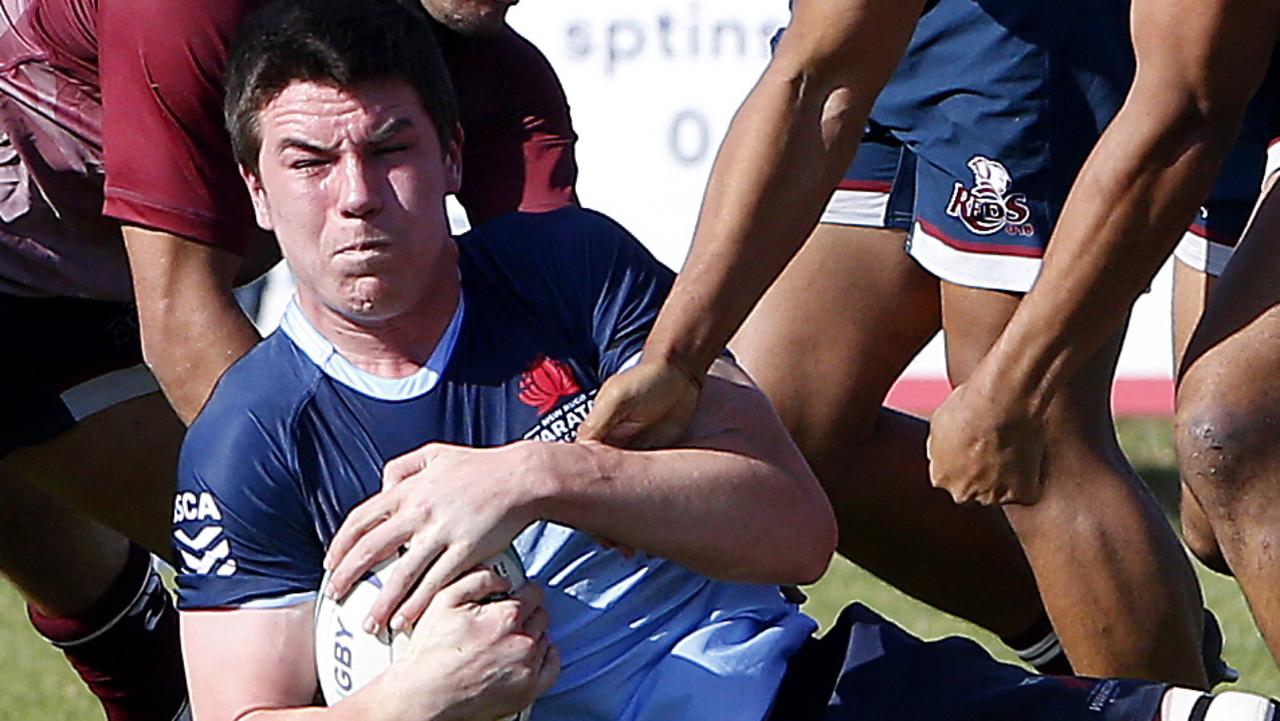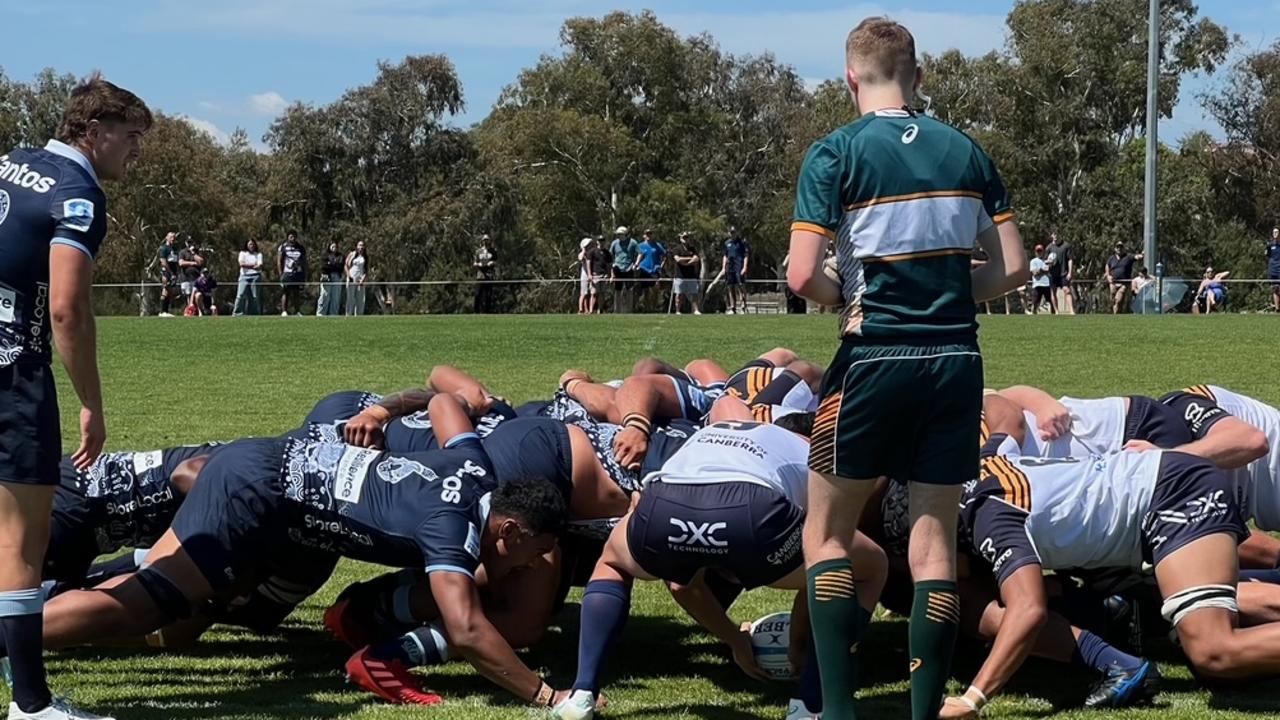Rugby World Cup: Wallabies’ win over England is Australia’s greatest in the tournament
THE demolition of England rates with the 1991 and 2003 semi-final triumphs over the All Blacks as the most resonant Wallabies performance in their World Cup history.
THE demolition of England rates with the 1991 and 2003 semi-final triumphs over the All Blacks as the most resonant Wallabies performance in their World Cup history.
It was that good, that clinical and that calm in the big moments at Twickenham.
Like those displays from other eras there was an emphatic statement in everything the Wallabies did to truly announce themselves at the tournament.
David Campese-led brilliance generated one of the most complete 40 minutes played by the Wallabies in Dublin in 1991 while big defence and tactics smothered the 2003 All Blacks.

MATCH REPORT: Foley dumps England out of their own party
AS IT HAPPENED: Relive the action from Twickenham on our rolling blog
PLAYER RATINGS: who were the stand-out Wallabies?
CHASTENED ENGLAND: ‘we’re sorry we’ve let everyone down’
FOLEY SHOW: Wallabies record-breaker silences Quade fans
WALES FOCUS: Wallabies not slowing down after England win
At Twickenham, the three biggest question marks on the Wallabies being genuine shots at making the final were answered.
We have a scrum, we have a cool playmaker in Bernard Foley and we have a goalkicker who can boot seven-from-seven in a cauldron.
Not insignificantly, we have back-up props and a back-up No. 10 in Quade Cooper who are insurance should the injury curse strike like it has Will Skelton, Wycliff Palu and Rob Horne.
Impressive skipper Stephen Moore said in July he wanted to win the attacking Australian way and have kids bugging their parents to wake up in the middle of the night to proudly watch the men in gold.
Tick. Tick.

Coach Michael Cheika deserves the greatest plaudits for his shake-up.
The Cheik-list of the boss’s shrewd calls are pivotal:
* Select Moore over Michael Hooper as captain.
* Hire the best backs mind (Steve Larkham), the most hard-edged defensive coach (Nathan Grey) and an Argentinian scrum guru (Mario Ledesma).
* Tell the ARU to change the eligibility rules so hardened overseas-based aces Matt Giteau, Dean Mumm, Kane Douglas and Drew Mitchell could be harnessed.
* Rebuild the faded team identity with Wallaby squad gatherings during Super Rugby.
* Make the big selection decisions ... Foley over Quade Cooper, Will Genia over Nick Phipps, no slowing James Horwill, back experience with Giteau, punt the old guard props and back David Pocock and Michael Hooper together.
* Smashing hard work into the Wallabies so the toughening of the pack’s physicality was real not a fingers-crossed guess on the night.
Over the past decade, the Wallabies have only rarely hit the pitch of this 33-13 thumping of England.
The 2011 Tri-Nations final win over the All Blacks in Brisbane had periods of it.
The clinical first half in Cardiff in 2009 when Wales were bullied might have qualified too but the Wallabies had taken all pressure off themselves on that Grand Slam-chasing tour by a draw with Ireland and a poor loss to Scotland.
The closest thing to the Twickenham precision in recent memory was the razzle-dazzle of the stunning 31-13 half-time lead over South Africa in 2010. It was in hostile Bloemfontein, at high altitude and the Wallabies were unfancied to do it.
This was a great win at Twickenham but the Wallabies need four more.
It will still likely take a “Grand Slam” run of wins over England (done), Wales, Scotland and Ireland plus no off nights just to make the final.
Cheika’s clear thinking and planning in a few months has made it possible.
Most importantly for the code in this country, the Wallabies have now made sure the marginal rugby fan has been captured for the quest.
Wake the kids in the middle of the night next weekend. It’s on again against Wales.
Tell them Mr Moore said so.
Originally published as Rugby World Cup: Wallabies’ win over England is Australia’s greatest in the tournament


